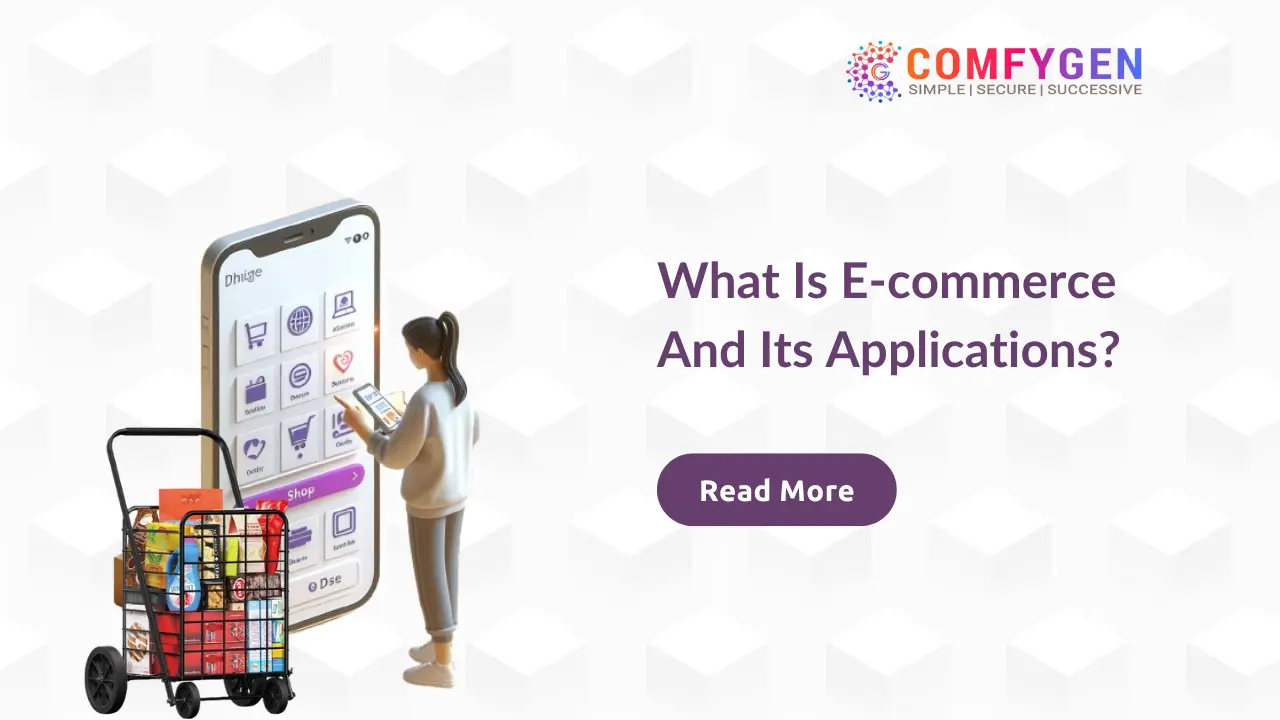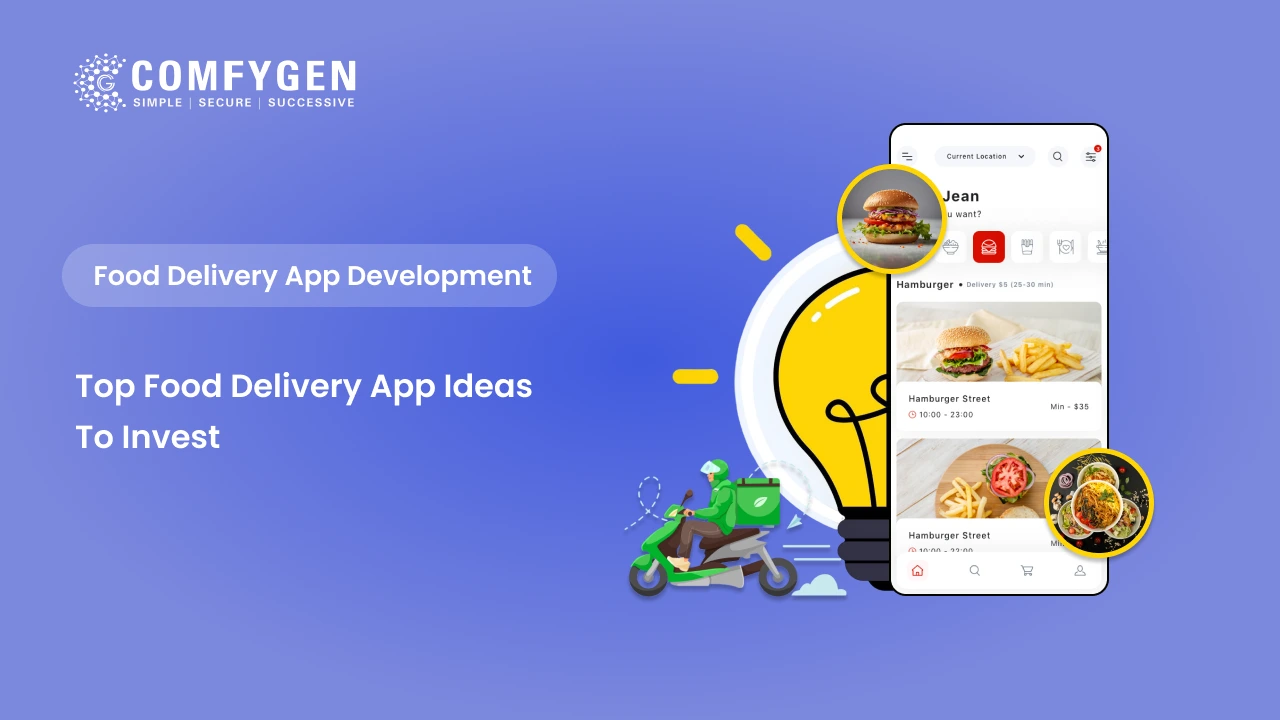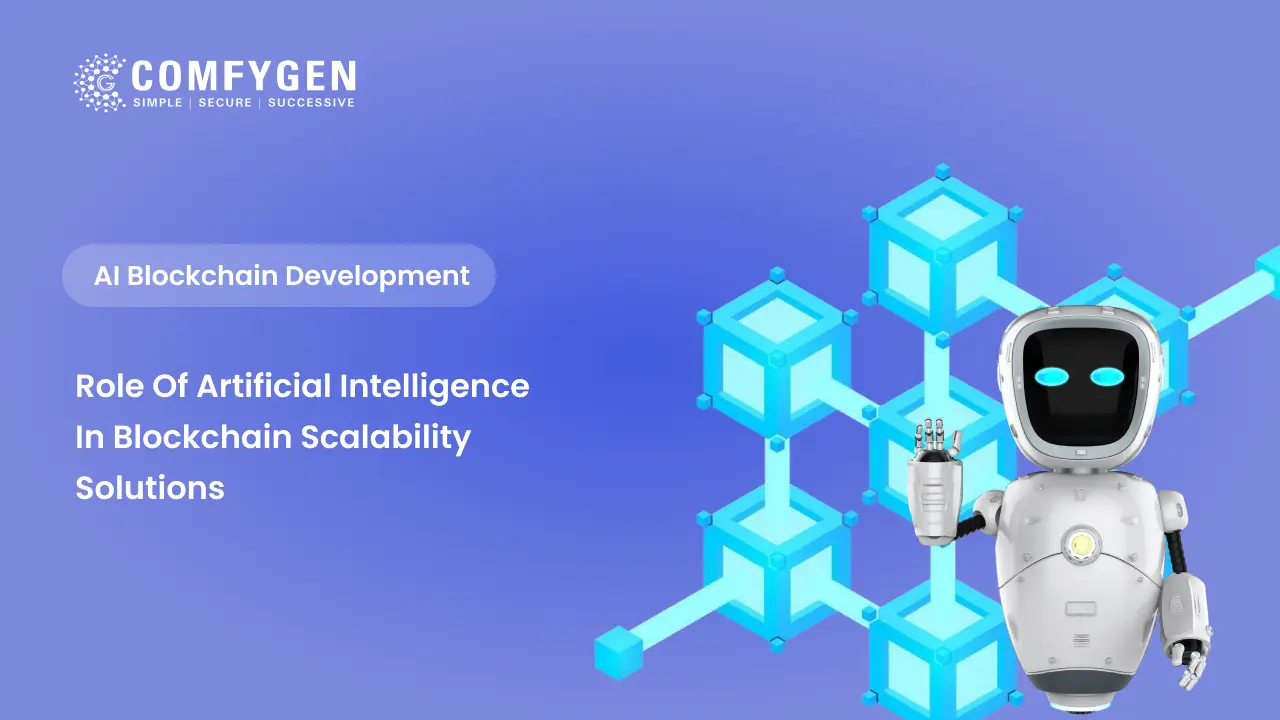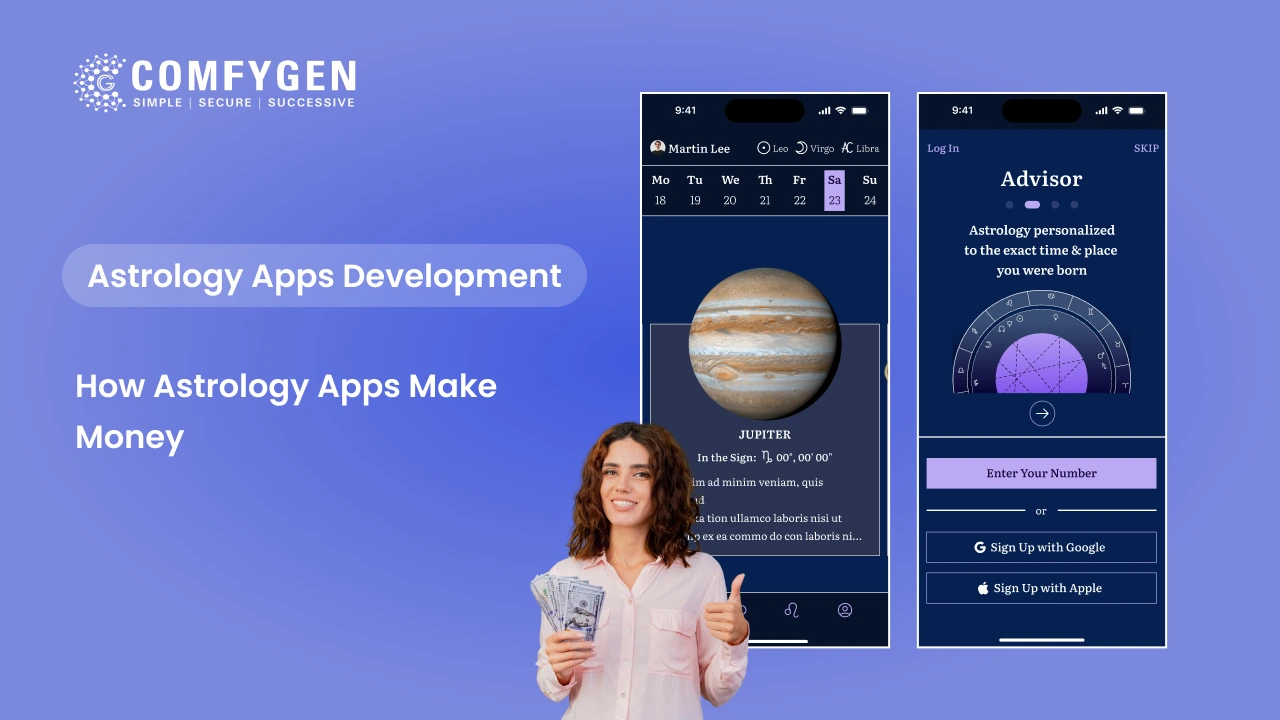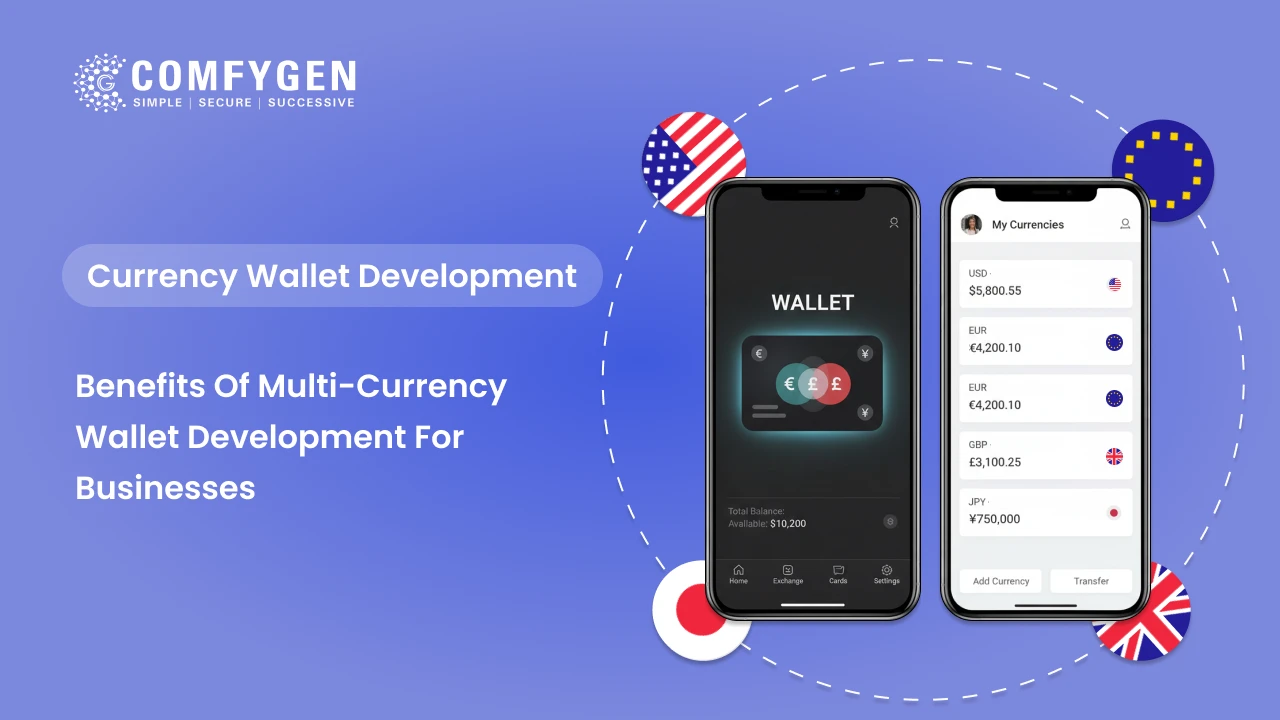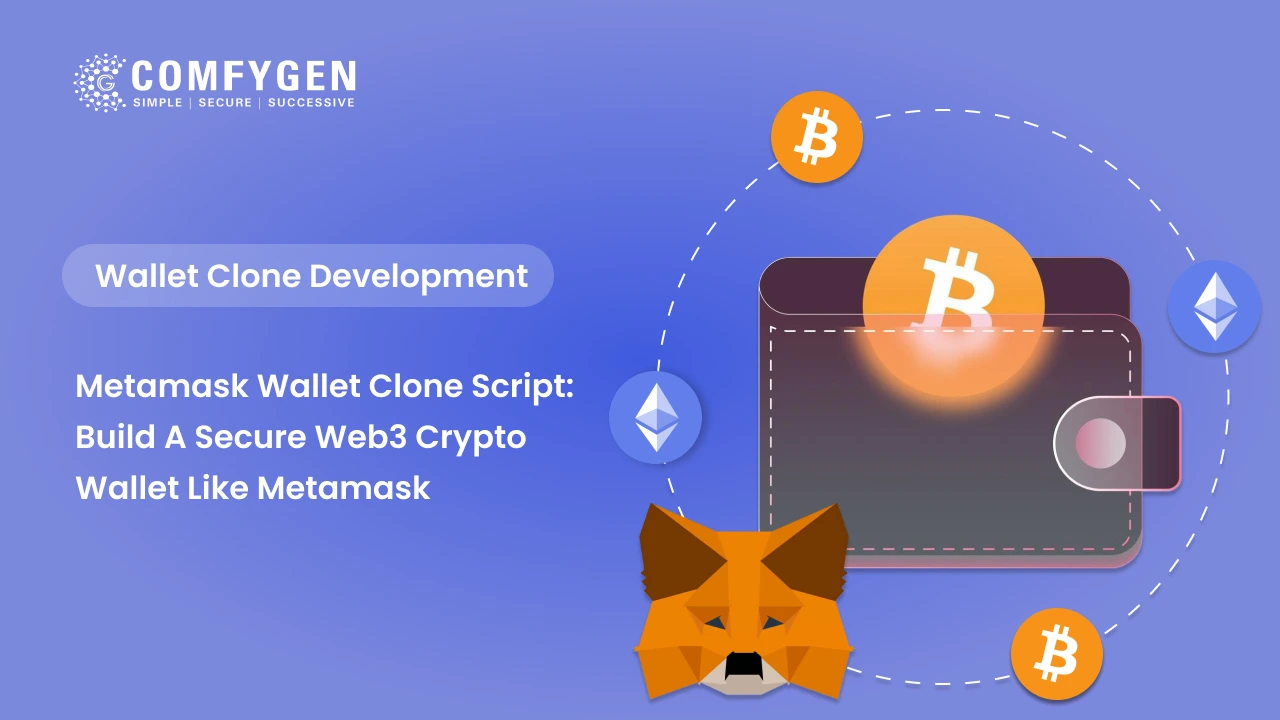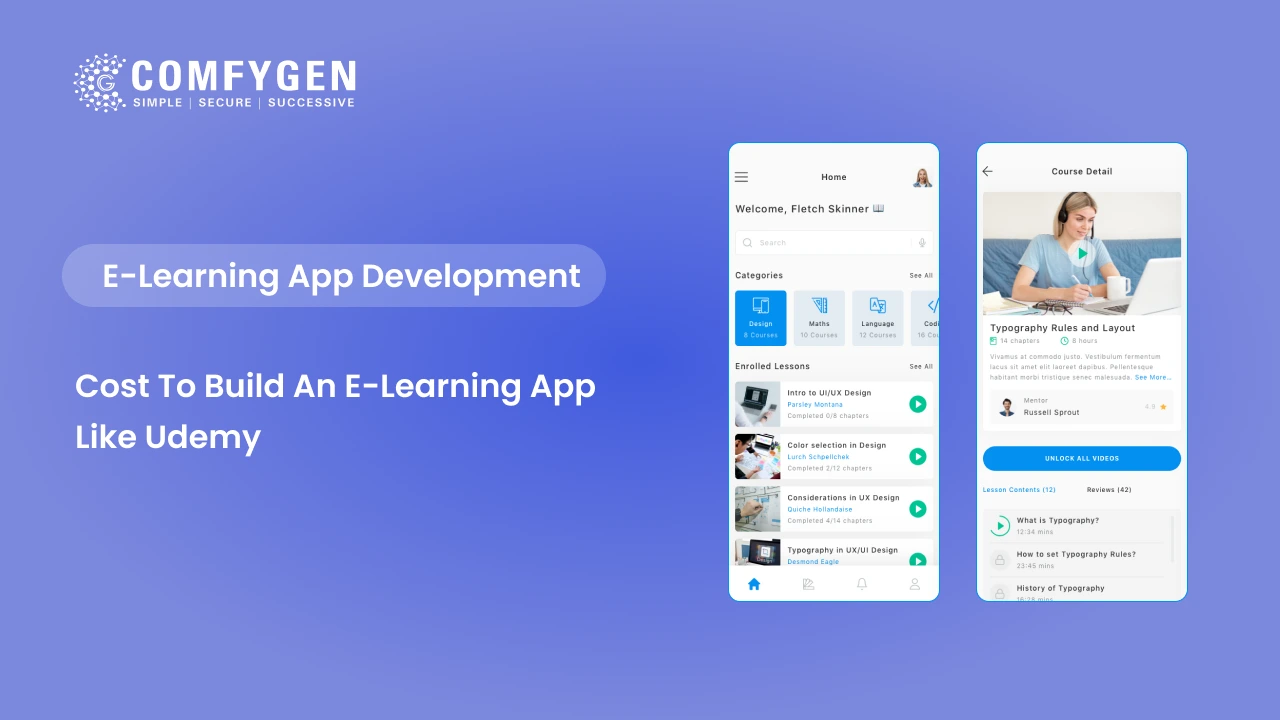What Is E-commerce And Its Applications?
TechnologiesIn an era when there is a digital app for everything that people do and want to achieve, businesses have also gone virtual and embraced the trend of mobile application development. Given that there are more than 7.2 billion smartphones today in the world, the number of apps that people use is skyrocketing.
The e-commerce boom continues to reshape how we buy and sell goods and services. Social media, e-commerce app development, and the preference for mobile shopping are all contributing to this digital revolution. which is transforming how we engage with products and services.
On average, every mobile phone user has more than 80 apps on his phone, which also includes e-commerce applications. E-commerce applications are all the rage now as people use them to shop online and get the products they need from the market. Now, the market is virtual and online, and people can access it through apps.
Developers use advanced tech stacks and tools from today’s software community to build e-commerce applications. In this blog, you’ll learn more about the rapidly growing e-commerce development industry and how it continues to evolve through innovative applications. You’ll also discover how e-commerce apps benefit people in everyday life.
Market Stats
In the e-commerce sector, there are a lot of growth opportunities. From studies, we see that the e-commerce application revenue in the world has reached the mark of $3.88 trillion, which is going to increase further in the next few years. In the e-commerce sector, m-commerce sales are going to hit the mark of more than $700 billion by 2027. Therefore, if you are a e commerce development company that wants to take your business to new heights, you should look at the possibility of developing an application of electronic commerce and create channels for revenue.
What Is E-commerce?
E-commerce stands for electronic commerce. It is a sector of business that operates mainly online but has results and outcomes in the real world. It is the virtual face of businesses and mostly deals with retail and order fulfillment. E-commerce has been around for many years, but only recently has it boomed to become a necessary part of mobile phones and systems.
Rise of E-commerce Platforms
Today, almost everyone uses multiple e-commerce apps to shop online. Popular platforms like Amazon, eBay, Walmart, Alibaba, Shopify, and Etsy offer a wide range of products and services. Online shoppers can easily explore and purchase from these vast selections. Statistics show that over 2 billion people worldwide rely on e-commerce apps for their shopping needs. The share of online retail purchases continues to grow steadily. The global e-commerce industry has already surpassed $6 trillion and is projected to reach $8 trillion by 2027.
Globalization and Business Opportunities
With e-commerce apps catering to a global audience, the revenue generation scope and possibilities for e-commerce apps are now massive, where people from all around the world can browse and buy international products, too. The use of e-commerce apps has made the retail industry highly globalized, opening up profit opportunities for businesses around the world.
Why Businesses Should Go Online
In such a scenario, it is best for business owners to opt for e-commerce application development and adapt to the current scenario. It is best if businesses are operating online and offline to increase their sales and revenue, as electronic commerce improves the scope of marketing and promotions. Digital products are in demand, not just physical products from retailers and sellers.
Future of E-commerce
In marketplaces and e-commerce sites, people can also access companies that offer services and subscriptions, which help in making their lives more convenient. The e-commerce development industry is diversifying, and it has the potential for tremendous growth in the coming years. The industry is vast and has space for businesses from different industry verticals and scales. Therefore, industry experts see small businesses and established marketplaces alike entering the sector and creating their own niches.
How Does E-Commerce Work?
The potential that e-commerce apps bring to the table is very high. However, this potential is only realized when the application is run in an optimized and well-managed way. To create and maximize the profitability of an e-commerce business app for your company, you need to understand how exactly e-commerce works.
More Than Just an App Interface
E-commerce is not just limited to an app interface. An e-commerce application is just one aspect of the whole e-commerce business. To know how an e-commerce business can generate profits for you, you need to understand how the system works. E-commerce applications are channels that connect buyers with businesses so that they can buy products online and get the products at their doorstep.
Order Placement and Processing
However, placing an order is just the first step in the e-commerce supply chain. The business has to process the order and maintain communication with the user to ensure that the user knows that the product will reach him on time. The e-commerce business has to pack and ship the product using a speedy delivery system that fulfills the order in a few days.
Speed and Efficiency in Delivery
The supply chain management for leading e-commerce applications is so optimized that people can even go for same-day or two-day delivery. The faster the delivery, the better, as people get the product as soon as possible and can rely on the e-commerce business to get the product they want.
Ensuring Quality and Reliability
During the order fulfillment process, the e-commerce business also has to ensure that the delivery system is reliable and that the products are provided to the users without any damage or loss. Significant damage and loss of product reduce the trust that the user has in the brand. Customer communication, order management, shipping, and quick delivery are all aspects of e-commerce business that owners have to integrate into the e-commerce business funnel.
Also Read: Top E-commerce App Development Company
Why Is It Necessary For A Business To Develop An E-commerce Application?
There are billions of users online who use e-commerce apps to order items, groceries, food, clothing, medicines delivery, tools, and everything that they need for a comfortable life. The concept of the shop front being accessible and inside your home is what makes e-commerce apps very useful and interesting for shoppers. The convenience factor of using an e-commerce app and finding products at your doorstep simply by ordering something online continues to make its impact.
What are the applications of e-commerce? The opportunity that e-commerce apps give to businesses to interact with customers and build a user base is why businesses opt for e-commerce app development. Companies are clocking in excellent ROI by investing in e-commerce apps that bring customers closer to the brand. In the next sections, you will learn about the advantages of e-commerce and how it impacts people and businesses around the world.
Hire E-commerce App
Development Company Today
Contact Now
Types of E-commerce Models
The types of e-commerce app models that you can look for when starting the e-commerce app development project. The different types of e-commerce app models are made for different business models and support the growth of the user base. Identify the kinds of e-commerce models your business needs and pick one. Here are the e-commerce models that are the most used in the world.
-
Business to Consumer (B2C)
The business-to-consumer model of an e-commerce app supports the sale of items from a business to customers. Customers place orders to buy items directly from a business.
-
Business to Business (B2B)
The business-to-business model allows businesses to place an order for materials and items from a business. The B2B model is where businesses buy products or raw materials from other businesses online.
-
Consumer to Consumer (C2C)
E-commerce platforms that support consumer-to-consumer selling and reselling, where consumers can directly speak to other consumers and sell items that were previously owned or bought by them.
-
Consumer to Business (C2B)
Consumer-to-business models of e-commerce where people like professionals and freelancers can offer their services to businesses and get paid in return. There are also e-commerce platforms for influencer marketing, content creation, and consumer-based marketing.
-
Government to Business (G2B)
The Government to Business Model of e-commerce is one where businesses can interact with government portals, publish requests for proposals, and avail of different services. The G2B model for e-commerce helps streamline exclusive projects and plans that the Government has for businesses.
-
Government to Consumer (G2C)
The government-to-consumer model for e-commerce applications is one that offers government-controlled products and services to consumers at lower prices and with more accessibility. The government-to-consumer model is followed by many government agencies that offer their services to users.
-
Business-to-Administration (B2A)
The Business-to-Administration (B2A) model involves adapting an e-commerce platform to provide services from businesses to government entities. This model streamlines service delivery through mutually agreed-upon terms between the business and the government.
-
Consumer-to-Administration (C2A)
The Consumer to Administration model of an e-commerce app is where the consumer sells or remits items or things to the government under a scheme or has to deposit something in return for some kind of service from a government agency.
Read More: E-commerce Development Company In Dubai
Key Components Of E-commerce
E-commerce applications are made of components that together run the e-commerce store smoothly. Together, these crucial components make the e-commerce store interactive and highly functional. E-commerce has multiple components and parts that should be highlighted. These are as follows:
- E-commerce Platforms
During the development of electronic commerce applications, the development company focuses on developing a strong e-commerce platform on which all the features can be built and integrated. E-commerce platforms are created with the front and back end to ensure that the app functions smoothly.
- Payment Gateways
The integration of payment gateways and multiple payment modes is also important. A major part of the e-commerce mode of business is payment and transactions. For smooth payments from the consumer side and returns from the e-commerce app development company, that needs to add strong payment gateways that can function under various traffic loads.
- Security Protocols
An e-commerce application needs to be secure for all its features to be used properly and for the users to trust it fully for daily use and order placement. The security of customer details, payment information, and transactions, as well as the security of the items that they order, should all be part of the protocol.
- Logistics and Supply Chain Management
To make an electronic business application successful, the logistics and supply chain management application areas of e-commerce are needed to support the digital platform. The logistics and supply chain have to be managed in real life for the e-commerce funnel to be fully successful.
Want to Develop E-commerce
Application Like Amazon?
Schedule A Call
The Most Commonly Used E-commerce Applications
E-commerce is linked with all major sectors of industry today, and businesses are going global with the help of e-commerce platforms. The online retail sector is an area of convenience and accessibility that has many applications. Here are the top types of applications that you can see in the e-commerce sector. The best applications in this sector are created in the following sub-sectors.
-
Online Retail and Shopping
The most common and popular type of e-commerce app is one that offers e-retail products. E-retail or online retail is where businesses sell retail products via online portals and applications. The retail e-commerce app can include categories of manufactured items such as clothing, home essentials, books, tools, medicines, and other retail products that are otherwise found in a variety of specialized shops. Such apps have virtual shopping carts to create a virtual shopping experience. Such apps also have e-catalogs with extensive categories to ensure that people can browse through different categories and buy products they want.
-
E-commerce Wholesale
Some of the very popular e-commerce apps are also based on e-commerce wholesale, where businesses and customers can buy goods in large quantities or a required amount at lower prices. E-commerce wholesale apps are very popular among people for their lower rates and high profits.
-
Electronic Payments
One of the e-commerce app types that are also popular and most used by people is one that combines electronic payments, rewards, and cashback. There are many online payment apps that are easy to use and also integrate with online shopping apps.
-
Online Auctions
Some of the apps that people use are created for online auctions and bidding. E-commerce applications that can be used for online auctions are where people can buy and sell different items at low prices. Therefore, such app models are used by a large audience.
-
Internet Banking
Lots of apps that are based on internet banking and finance services, as well as multiple financial services and insurance plans that people can buy and avail themselves of with ease by taking a few clicks.
-
Online Booking
Many e-commerce apps that are based on finding hotels, buses, or any other bookings, where people can find the best deals in one place and select the property or the service they want to book.
-
Digital Content Distribution
There are also e-commerce platforms that are based on digital content distribution and content creation, where content creators can create and distribute content to monetize their content and earn money.
-
Manufacturing
For bulk manufacturers and producers, e-commerce apps are also beneficial as they allow for more streamlined purchasing and selling between suppliers and manufacturers. These e-commerce apps that run on a more B2B basis create scope for more sales and profit for the manufacturers and suppliers.
On such apps, manufacturers can sell to businesses at lower rates and manage their stock. This creates an ecosystem of businesses that can manage their inventory and operate in the market virtually. The use of such apps optimizes and speeds up the supply chain. These are usually marketplace apps that are very useful in creating networks of manufacturers who purchase the app and then sell it physically.
Benefits Of E-commerce App For Businesses
E-commerce app development is beneficial for businesses that are trying to achieve multiple business goals and objectives. It is important to identify the goals that you want to target and discuss these objectives with your e-commerce app development team before the start of the project. The launch of e-commerce apps can be very beneficial for businesses and ventures. These are the benefits of e-commerce apps.
-
Global Reach
Do you want to reach out to a larger user base and target more people who will buy your products and increase your sales? A physical shop or market is not as accessible and reachable as an e-commerce app. A physical market is only open to the nearby areas and people of a certain region. However, when the same marketplace is digitalized and made into an e-commerce app, the app can be downloaded by millions of people and give your company the scope to create a vast user base in a matter of months.
The best way to increase the reach of a brand and make it available to a larger audience is by launching an e-commerce app that can be used by people all around the world. With a good e-commerce application, your business can operate on an international level to generate more revenue and popularity.
-
Reduced Costs
Every business wants to improve the way it operates so that the cost of operations is reduced and the scope for profits increases. When you have a physical store, the cost of operations over a time period can be higher than the cost of creating and maintaining an e-commerce application.
The cost of e-commerce app development can go from $100,000 to $500,000. The e-commerce app development cost of owning or renting a shop front for a long time and maintaining it with all the utility bills can be higher than the initial cost of developing an e-commerce app. Once you have an e-commerce app development, the development team will also help you maintain the e-commerce app at lower costs.
The percentage of profits that you get from e-commerce apps will be higher than the profits that you get from a traditional shop front. Therefore, when we compare the e-commerce app development cost of running a traditional business to that of an e-commerce business, the costs are lower for e-commerce when stacked up against the profitability they bring to the fore.
-
Improved Customer Service
E-commerce application development is also undertaken to improve customer services for the user base. With an e-commerce app and supply chain, a company can reach the user base and offer products and services at the grassroots level. People can get their desired products and services at home in speedy shopping, which is great for the customer service you provide e-commerce.
-
Personalization and Customer Targeting
E-commerce mobile app development is also done with the most advanced technologies and features to offer a higher level of personalization and better customer targeting over time. The use of AI, recommendation algorithms, and other features of e-commerce apps can help in targeting the customer better and increase user engagement and customer satisfaction.
-
Increased Sales with Analytics
The launch of an e-commerce application can help increase sales as you can use digital portals and applications to analyze the traffic that comes to the website. The web portal or application that is used for e-commerce operations can be integrated with data analytics and big data to find areas to improve for better sales and revenue.
Want To See A Demo Of
An E-commerce Application
Contact Now
Benefits Of E-commerce App For Consumers
With the help of e-commerce apps, customers can get all they need for their home and lifestyle at home. Consumers have embraced the digital transformation of retail because of the way these apps support people’s modern lifestyles. Consumers benefit from the use of e-commerce apps and features. Here are the top features included in good e-commerce apps.
-
Convenience and Accessibility
An electronic business application can be used to offer higher convenience and better access to products and services. An e-commerce app can give the user the freedom to select and buy products from the online portal and get them at home.
-
Wide Range of Products and Services
Customers can use an e-commerce mobile application to find a wide range of products and services in one place. Instead of going to the market and searching multiple stores for different types of products, a user can simply log into an app and find whatever he wants to buy online and place orders to get them delivered to home. This increases the convenience factor for families and professionals.
-
Competitive Prices and Offers
What are e-commerce applications if they do not offer competitive prices and exclusive offers? People can use the e-commerce app to get products at the best prices and at lower rates than in the market. In this way, users can save a lot of money.
-
Detailed Product Information and Reviews
E-commerce application development is also beneficial for customers because, on such portals, the users can look for detailed product reviews and compare different products under one roof. After a complete product review with videos and feedback, a customer can place an order for the thing he wants to buy.
-
Time-Saving and Efficiency
The best e-commerce solutions from a good company can be time-saving and very efficient at placing orders and getting the things that a person wants to buy as soon as possible. These days, e-commerce apps have a very quick delivery system that provides the items to users within a day or two. Online shopping apps are now more efficient and convenient than going to the physical market.
Also Read: 20 Key Features to Include in Your Ecommerce Website Development
Challenges In E-commerce Business
Developers should tackle many challenges in e-commerce businesses properly. These challenges also create scope for important developments.
-
Cybersecurity Threats
Mobile application development in the e-commerce sector can face a lot of challenges, which primarily consist of cybersecurity threats and issues in the security layer of the mobile app. To protect the on-demand apps from threats and data breaches, it is important that the e-commerce application development team practices robust and updated security techniques and methods to ensure that the app is protected fully.
-
Legal and Regulatory Issues
During the creation and development of an e-commerce app, a mobile application development company also has to cater to the legal and regulatory issues that might arise. Regulatory issues and compliance issues can create problems later on, so these issues need to be addressed during the development phase.
-
Payment Fraud
The payments and the transactions that happen through the e-commerce app should also be handled properly and with security around them. The payment and transaction gateways need to be secured with technologies like blockchain and encryption during the E-commerce app development process. This protects the payments and the users from fraudulent activity and hacking.
-
Logistics and Delivery Challenges
The use of a logistics chain and the creation of a delivery system for the delivery of items and products can be a major task as it is what makes the e-commerce app work. If you are looking at a certain region or you want to expand the region of your operations, the e-commerce app logistics chain also has to be optimized properly. For this, the b2b e-commerce development services have to focus on creating tools and portals for communication between the delivery executives, customers, and the company.
-
Customer Trust and Satisfaction
Customer trust and satisfaction is one of the important parameters that determine the success of a Magento e-commerce app. A Shopify development app has to be created in such a way that it maintains customer trust and extends the best satisfaction levels in terms of service and product quality.
Future Trends In E-commerce App Development
The development of e-commerce apps intertwines with other emerging technologies and can support the working mechanism of e-commerce apps. The creation of e-commerce applications can be improved with the use of new tech trends and tools. Here are the future Trends in E-commerce commerce application development that can affect the way apps are developed completely and add new technologies.
-
Mobile Commerce (M-commerce)
E-commerce is used through mobile phones these days, and the demand for M-commerce is increasing. More than 65 percent of the e-commerce traffic comes from mobile phones. Therefore, it is best if customized b2b e-commerce development services make mobile e-commerce apps on demand. Even if you have an e-commerce website, you should always aim to create an app for mobile phones that can be used diversely.
-
Voice Commerce
Voice commerce and searching for things on e-commerce platforms by using voice recognition and AI-powered technology is a trend that is in vogue and adopted by leading e-commerce app development companies.
-
Augmented Reality (AR) and Virtual Reality (VR)
The use of AR and VR is also on the rise in e-commerce apps. OpenCart’s e-commerce website also uses AR and VR to provide people with real-life experiences. With the use of Augmented reality, people can try on products, visualize them completely, and make better purchase choices.
-
Artificial Intelligence (AI) and Machine Learning (ML)
E-commerce and AI are closely integrated in today’s digital era, where technologies like AI and machine learning (ML) enhance the precision and functionality of e-commerce applications. These algorithms are embedded into apps to deliver more personalized, efficient, and streamlined experiences for product search and purchasing.
-
Blockchain Technology
Shopify web app development and other app development processes also integrate highly secure blockchain technologies so that the app can be secure and easy to use for transactions and sensitive data.
How To Get Started With E-commerce?
Creating an e-commerce app is very beneficial for your business. If you plan to take your business to the digital sphere, you need to choose a team of e-commerce app developers who are ready to take steps to create a high-performance app. The right e-commerce app development team can help you launch your project smoothly. Here’s how you can begin your e-commerce app journey: by choosing a skilled development team, you can build a tailored app that perfectly fits your business needs.
-
Choosing the Right E-commerce Platform
To start your own e-commerce site or app, you need to choose the right kind of e-commerce platform that can help your business create more revenue. By choosing a strong e-commerce hosting service like Shopify, you can create a robust e-commerce site or app. Shopify and BigCommerce app development services can be used to create powerful and user-friendly e-commerce applications.
-
Setting Up Your Online Store
The e-commerce app development process includes building the front end and setting up the online storefront to enable user interaction and product browsing. The store should feature complete product listings and a well-organized layout to ensure a smooth shopping experience.
-
Integrating Payment Gateways
Once the app is developed, payment gateways are integrated to enable secure transactions and ensure the app is fully operational. This step is essential for streamlining the business’s commercial operations.
-
Ensuring Security and Compliance
After the basic e-commerce app model is ready, it’s essential to focus on security and compliance to ensure ethical use by the user base. Proper security measures and regulatory compliance help prevent legal issues and build user trust.
-
Marketing and Promoting Your E-commerce Business
Marketing and promotions of your e-commerce app before and after launch are also important so that the user base can know about the platform and be attracted to use it. Through social media integration and the use of influencer and video marketing, you can create channels for the promotion of the e-commerce business.
Also Read: E-Commerce Development: Steps, Features, and Factors
How Do E-commerce Apps Help Your Business Grow?
The Internet is here to stay, and with it, the use of e-commerce applications is growing. There are billions of users online who use e-commerce apps to order items, groceries, food delivery, clothing, medicines, healthcare products, tools, and everything that they need for a comfortable life. The concept of the shop front being accessible and inside your home is what makes e-commerce apps very useful and interesting for shoppers.
The convenience factor of using an e-commerce app and finding products at your doorstep simply by ordering something online continues to make its impact. The opportunity that e-commerce apps give to businesses to interact with customers and build a user base is why businesses opt for e-commerce app development. Companies are clocking in excellent ROI by investing in e-commerce apps that bring customers closer to the brand. In the next sections, you will learn about the advantages of e-commerce and how it impacts people and businesses around the world.
How Much Does It Cost To Develop An E-commerce Application For Your Startup Business?
Building an e-commerce app for your startup is a strategic investment — and the cost largely depends on the features, platform, and development team you choose.
Whether you’re launching a single-vendor retail app or a multi-vendor marketplace like Amazon, the total development cost typically ranges from $5,000 to $100,000+.
The best approach for startups is to begin with a Minimum Viable Product (MVP) that includes essential features like user login, product listings, cart, and payment integration — and then scale with more advanced functionality as your user base grows.
Below is a breakdown of typical development costs and influencing factors:
|
App Type |
Estimated Cost (USD) |
Includes |
|
Basic MVP |
$5,000 – $15,000 |
User login, product listings, cart, payment integration |
|
Mid-Level App |
$15,000 – $35,000 |
Enhanced UI, order tracking, admin panel, and user profiles |
|
Advanced App |
$35,000 – $100,000+ |
AI recommendations, multi-vendor, live chat, subscriptions, analytics |
Get Estimated Cost To Develop an
Ecommerce App Like Amazon
Contact Now
Why Choose Comfygen To Develop E-commerce App
Comfygen Technologies is one of the best e-commerce development company, offering a range of tailored e-commerce models at competitive rates. Choosing Comfygen Technologies from the start ensures your project is handled by a skilled team of developers with deep expertise in e-commerce solutions. As a client-centric agency, Comfygen is committed to meeting deadlines and delivering high-quality, advanced e-commerce applications. The team not only builds robust apps but also supports clients with marketing and growth strategies.
Conclusion
E-commerce applications are in high demand from direct consumers, businesses, retailers, and other stakeholders of this growing industry. If you already have a business and want to maximize its potential, then it is best to invest in e-commerce application development, which can create the scope for more reach, revenue, and profits for your business. Choosing a top-notch e-commerce app development company and discussing your business objectives with the team is important before you kick start the e-commerce development project.
FAQs
Do you specialize in creating E-commerce MVPs?
The development of e-commerce MVPs is a task that our team can do very easily and for the best results so you can take the product and launch it properly.
What is e-commerce applications?
Answer:
An e-commerce application is a digital platform or software solution that enables buying and selling of goods or services over the internet. These applications support online transactions, manage inventory, process payments, handle logistics, and offer personalized shopping experiences to users.
E-commerce applications can be in the form of:
-
Websites (like Amazon, Flipkart)
-
Mobile apps (like Nykaa, Zomato)
-
B2B portals (like Alibaba)
-
Service platforms (like Practo, Udemy)
What are the key features of e-commerce apps?
E-commerce apps typically include user registration, product browsing with search and filters, a shopping cart, secure payment options, and order tracking. They also offer features like personalized product recommendations, customer reviews, push notifications, and integrated customer support to enhance the user experience and drive sales.
How long does it take to launch an e-commerce app?
The time to launch an e-commerce app depends on the features and complexity. A basic app with standard functions can take 4 to 8 weeks, while a fully customized solution with advanced features may take 3 to 6 months. Timelines can vary based on design, development, integrations, and testing requirements.
What are the technologies that are used to develop e-commerce applications?
E-commerce applications are built using a combination of frontend, backend, and database technologies. Commonly used technologies include HTML, CSS, JavaScript frameworks like React Native or Angular for the frontend, and backend languages such as Node.js, PHP, Python, or Java. Databases like MySQL, MongoDB, and PostgreSQL handle data storage, while platforms like Shopify, Magento, and WooCommerce offer ready-made solutions. Payment gateways, cloud hosting, and APIs are also integrated to ensure smooth performance and scalability.

Mr. Saddam Husen, (CTO)
Mr. Saddam Husen, CTO at Comfygen, is a renowned Blockchain expert and IT consultant with extensive experience in blockchain development, crypto wallets, DeFi, ICOs, and smart contracts. Passionate about digital transformation, he helps businesses harness blockchain technology’s potential, driving innovation and enhancing IT infrastructure for global success.
Based on Interest
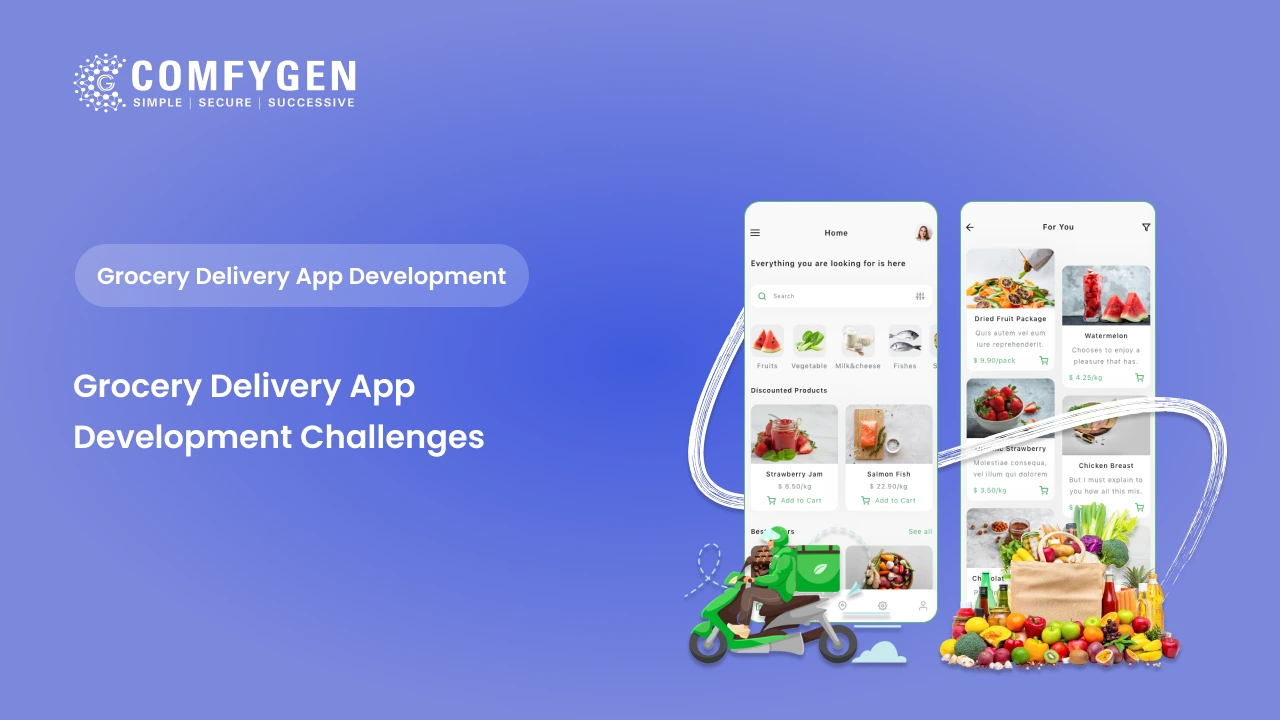
Grocery Delivery App Development Challenges: Common Problems and How to Overcome Them
In today's fast-paced digital age, the online grocery delivery industry is experiencing significant growth. With consumers preferring doorstep facilities over traditional shopping,…

